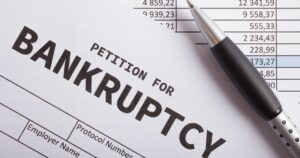It is tax season, which means that you are probably anxiously awaiting your tax refund check.
But, if you are in the process of bankruptcy, or if you have filed bankruptcy and you are in the repayment process, you might wonder what happens to your federal or state tax returns. If you have filed Chapter 7 or Chapter 13 bankruptcy, you could lose your refund. However, it depends on circumstances of your bankruptcy, the amount due, and the terms of your bankruptcy agreement.
Tax Refunds in a Chapter 7 Bankruptcy Case
For those who file Chapter 7 bankruptcy, your tax refund is an asset. The courts seize assets to pay down debts before discharging the remainder. Sometimes, a tax refund is exempt, so the trustee may not take that refund. There are proper exemption amounts for assets, including tax refunds; however, this varies depending on the state. In Washington, you can choose between the state exemptions or federal exemptions, but this decision is made at the time when you file for bankruptcy.
The federal government allows for a wildcard exemption, which is best if you want to protect a tax refund. This wildcard allows you to protect your assets up to a specific amount, and the wildcard applies to any asset, rather than a specific category of assets.
Filing for Bankruptcy During Tax Season
If you file for bankruptcy – specifically Chapter 7 – during tax season, you must determine what your tax refund will be and how you want to use it during the bankruptcy process. You can use the refund for a wildcard protection if you opt for the federal exemptions. However, realize that using this wildcard on your return might affect other assets that you want to roll into the wildcard category, depending on the value of your refund and other assets.
When You File at the End of the Year
If you file for bankruptcy near the end of the year, such as October to December, and you expect a large tax refund, you might face several issues. For starters, the large refund might exceed the wildcard, so the trustee may force you to give part of your refund to the court.
What About Tax Refunds for Chapter 13?
Any extra income you have typically goes toward your debts. The trustee overseeing your Chapter 13 repayment might seize the tax refund each year until the Chapter 13 repayment plan is satisfied. This is especially prevalent if your plan pays less than 100 percent of the total debts.
Issues like tax returns and bankruptcy can get complicated. Let us help uncomplicate things for you. Contact us to schedule a consultation.

